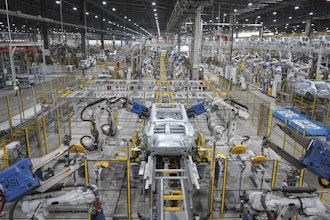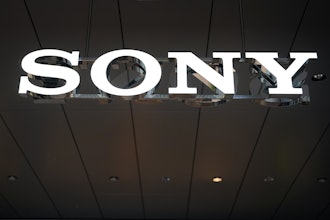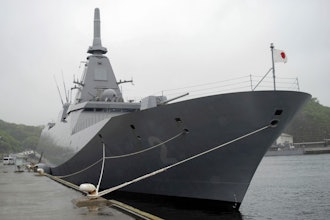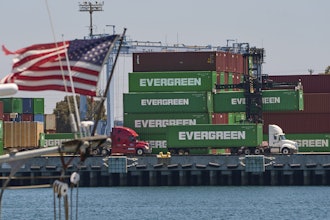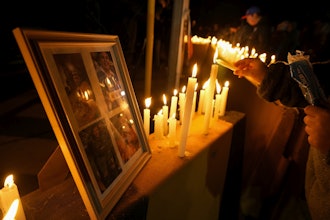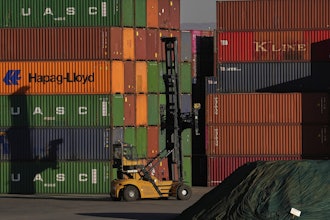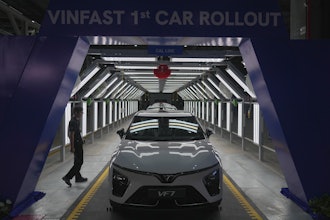KLIMOVSK, Russia (AP) -- Russia has been a major market for counterfeit music, movies and computer programs from around the world, but at least one Russian product has been pirated worldwide: the Kalashnikov assault rifle.
Russia will step up action to defend the copyright of the Kalashnikov, which is made without license by dozens of manufacturers around the world, said Anatoly Isaikin, the chief of the nation's state arms-trading monopoly.
The Kalashnikov has become the world's most widely distributed weapon, with some 100 million made in the 60 years since the AK-47 went into serial production, but only about half of them are the genuine, locally made article.
The counterfeit production of Kalashnikovs outside Russia has incurred financial losses, tarnished the brand because of their poor quality and dented the country's prestige abroad, Isaikin said Thursday.
"Their quality bears no comparison to a Kalashnikov produced in Russia," Isaikin told reporters at a shooting range in the town of Klimovsk, 25 kilometers (15 miles) south of Moscow.
Isaikin said his company, Rosoboronexport, was working to draft agreements with foreign countries that would protect copyright for Kalashnikovs and other Russian weapons. There are about 30 foreign manufacturers who are currently making Kalashnikovs, he said.
"Together with other federal structures, we are taking steps to establish order," Isaikin said.
The Soviet Union paid little attention to copyright laws, easily handing out arms production licenses to its satellites in eastern Europe and elsewhere. The Cold War-era production licenses have long-since expired, but production has continued.
It wasn't until 1997 that the Izhmash factory in the Ural Mountains city of Izhevsk, which makes Kalashnikovs, secured a state patent for the weapon and began pressing foreign manufacturers to respect its copyright.
Izhmash director Vladimir Grodetsky said the company has faced an uphill battle, loosing an estimated $400 million to $500 million a year from counterfeit Kalashnikov makers.
He said that Venezuela, which has struck a deal to buy 100,000 rifles and produce more under license, is now the only fully legitimate license holder.
Other Kalashnikov makers, including East European nations and China, have signaled readiness to respect Russian copyright but have said that the deals should be negotiated on a government level, Grodetsky said.
Isaikin wouldn't say how long it could take to negotiate such a deal with China, a major maker of Kalashnikovs.
The Soviet Union provided China with weapons technology until the two Communist giants turned into bitter rivals in the 1960s. Moscow and Beijing rebuilt their ties in the early 1990s, and China again became a top customer for Russian weapons, purchasing billions of dollars worth of fighter jets, missiles, destroyers and submarines.
But China has reduced purchases of Russian weapons in recent years and started producing unlicensed copies of some of them, including the Su-27 fighter jet, signaling that Russia may find it hard to defend its copyright.





